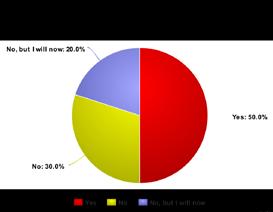
9 minute read
JEFFREY WILSON
Counsel, JunHe LLP Interview by Ryan Gandolfo
As a counsel specializing in employment law in China, Jeffrey Wilson has unique insight into how the law works here. Below, he shares with That’s his experience working in a large PRC law firm and common misconceptions that foreigners may have regarding their employment in the Middle Kingdom.
Advertisement
How did you get started in law in China? After college, I worked at an import company in Portland. Many of my friends were going to Japan, so I did something different and went to work for a year in China before law school. I went to the University of Washington, so I was able to take a couple of introductory classes in Chinese law as well as get a MA in Chinese studies.
I was originally supposed to return to the Chinese mainland for study in 1989 but ended up going to Taiwan for about 10 years, where I worked for a couple of law firms, as a translator, placing athletes, and as a writer and newspaper editor. I like to think that last experience was quite helpful to prevent me from writing like a stereotypical lawyer.
With kids and tuition to pay, I finally decided to leave Taiwan and join a large international firm. That took me to Hong Kong and Shanghai in 2002, where I was trained as a general commercial lawyer doing all kinds of China work. I started to specialize in employment law about 15 years ago.
How important is Chinese language proficiency to working here as a lawyer? Depends on what type of firm and the area of practice. If a lawyer is working in an international firm and only doing international deals in English, then maybe minimal Chinese skills are needed.
In contrast, labor law is quite a local practice, and I’m with a PRC firm. It would be hard to get by without reasonable proficiency in written and spoken Chinese. For example, we have
a new IT and document management system. Almost all the interface is in Chinese, as is much of the written communication in the office.
Having some Chinese abilities hopefully means I’m less of a burden to the office staff and can live and work somewhat independently. I also realize that the days of foreigners coming to work in local or international firms might be quite limited because of the large pool of local lawyers who have great language and legal skills.
What is your experience working in a large PRC law firm? I’m one of the few foreigners in a large, established PRC firm, so I probably have a rather unique perspective on how a local firm operates. Our group has a large client base of mostly foreign companies, so I can get a fairly good sense of how the law is applied in practice and what employers do.
Because JunHe is a local firm, I also get the chance to see how my colleagues navigate the courts in litigation. Our team of about 35 labor lawyers has decades of experience in offices across China, so there are a lot of resources I can pull from if necessary.
Why are you interested in Chinese employment law? Employment law gives a window into how society is changing as well as how the law impacts people on an individual level.
There are also so many interesting issues that come up and to explore, such as how older workers are treated, employee investigations, data privacy, litigation and discrimination. For many employees, the law is quite protective, and those employees are often quite aware of how to use the law to their advantage.
There is also the difference between Chinese and Western approaches. Take the reactions to COVID-19 when the government here discouraged layoffs and made a few substantial changes in the law. It was much different than what happened in some Western countries with layoffs, changes to the law, government intervention and financial supports.
What are some common misconceptions that foreign nationals may have regarding their employment at a Chinese entity? One is that foreigners enjoy all the rights that their PRC national colleagues and friends enjoy. Another misconception is that simply having a contract protects the foreigner. The contract isn’t worth much if the foreigner doesn’t have a work permit. Finally, some foreigners think they can change jobs and continue to work on a work permit. In reality, the foreigner will need to amend the work permit with the new employer.
TAKE STOCK
TAP THAT APP
China Train Booking
As several individuals have informed us over the past month, WeChat’s popular travel booking Mini Program has routinely denied foreign nationals from booking trains on the platform. With this in mind, we turn our attention towards China Train Booking, a quick and easy way to book train tickets on-the-go.
China Train Booking is an Englishlanguage app that helps you book high speed trains all across the country. After you complete your ticket purchase, the app supports the latest e-ticket setting so you can get into the station and board your train with only your passport and a charged mobile phone! There are other options to collect your ticket or have it delivered to your hotel or personal address.
The only downside is an added service charge of USD3 tacked on to each ticket order. However, if you find yourself in a jam at the 11th hour and need a quick way to book a train, China Train Booking is a worthwhile option.
> China Train Booking is available on iOS and Android devices.
CHART ATTACK
Privacy First
Popular Chinese logistics company Yuantong has been under investigation after an employee colluded with hackers to steal users’ personal information and sell it to other criminals. According to Sina Tech, as many as 400,000 individuals’ personal information has been compromised. A Weibo poll conducted by Sina Tech asked users whether they remove the order information on the package before opening it. Roughly half of respondents admitted to destroying any personal information taped to the packaging while nearly one-third of users said it was too much of a hassle.
Source: Weibo

INSPECT-A-GADGET
ByteDance Dali Smart Tutoring Lamp T5
The Dali smart lamp is the first consumer hardware product from TikTok parent company, ByteDance. While this may seem like an unusual foray into the education sector, the device is just one part of the company’s expanding education technology portfolio. This push into education began several years ago and includes software products GoGoKid, Qingbei and Guagua Long – all of which are part of the Dali Education division which employs more than 10,000 people.
The desk lamp features a display, two cameras and a built-in digital assistant. The product is aimed at parents who want to ensure their kids are doing their homework and aren’t able to be there to supervise and aid them. The two cameras, located on the top and front of the lamp, enable remote monitoring via a connected smartphone app. Pictures of finished work can be submitted for inspection and the cameras can also be used for video calls. The digital assistant offers help with Math problems, English language learning, word searches and even pronunciation. Additionally, the lamp is certified as a national AA level, ‘professional eye protection lamp’ which emits less blue light than other devices – offering some peace of mind regarding eye strain.
With its stable of apps and the Chinese consumer’s appetite for education products, ByteDance’s first hardware product offers a great solution for parents seeking to find a balance between work and looking after their kids.

HIGHS AND LOWS


Highs
• China and nine other countries signed the Regional Comprehensive Economic Partnership (RCEP) last month, which is seen as an extension of growing Chinese influence in the region. After eight years of negotiating, the partnership represents nearly one-third of global gross domestic product (GDP) and is notably the first time China has signed a regional multilateral trade pact, BBC reports. The RCEP is expected to remove various tariffs on imports within the next two decades, and will likely incentivize member countries to look for suppliers within the trade region. Australia, New Zealand, Japan and South Korea are included in the pact. • JD.com’s online healthcare unicorn JD Health is inching closer to being listed on the Hong Kong stock market after passing a listing hearing in mid-November. After separating into its own unit in May 2019, the digital healthcare company’s valuation has increased from USD7 billion to USD30 billion. JD Health saw significant growth in the wake of the COVID-19 pandemic, and currently accounts for over 15% of the domestic pharmaceutical retail market, Pandaily reports. • Chinese open-source software startup Zilliz recently raised USD43 million in Series B funding, marking a sentimental shift in the way investors view the sector. Charles Xie, founder and CEO of Zilliz, previously worked as a software engineer at Oracle before returning to the Middle Kingdom to start Zilliz. The company’s newly acquired capital is expected to go towards overseas recruitment, growing its open-source ecosystem and research and development in cloud-based products and services, according to Techcrunch. The company plans to start monetizing on its cloud-based services in the second half of 2021.
Lows
• Chinese tech companies’ fintech arms have come under heightened scrutiny from Chinese regulators as many were mulling IPOs in Chinese mainland stock exchanges. One of the most high-profile fintech company Ant Group saw its hopes of a potential recordbreaking IPO dashed in early November after a regulatory shift upended the company’s entire business model, according to South China Morning Post. • A new order by the Trump administration is banning US investments in Chinese firms that the government claims to have ties to the Chinese military. Signed last month, the ban will go into effect in January and could have an adverse effect on some of China’s biggest publicly listed firms, such as China Telecom. US investors will have a year to reshuffle investments. The new order applies to 31 firms that the US has identified as being backed by the Chinese military, which includes tech firms and large state-owned construction companies, among others. While Trump is set to leave office in January, it’s unclear whether incoming President-elect Joe Biden will intervene on this order. • Nearly three billion packages were delivered across the PRC between November 11-16 following a record-breaking Singles’ Day shopping festival. The staggering figure marks a 28% increase yearon-year, and means that every person in China received two parcels in the six-day window, on average. It also indicates a massive increase in e-commerce waste, including materials like cardboard, tape and wrapping bubble. While major tech players like JD.com and Alibaba have started initiatives to make online shopping more sustainable, it’s unlikely to have a major impact for the sheer number of packages.




